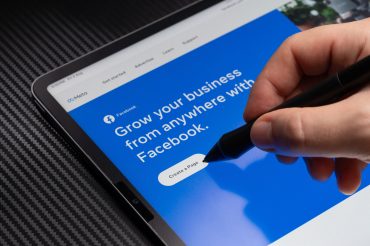
Meta Plans Full AI Automation of Digital Advertising by 2026
5 minute read

Digital advertising platforms embrace AI tools to automate campaign creation and optimization across global marketing networks
Key Takeaways
- AI-generated livestream delivers $7 million in sales as Chinese entrepreneur Luo Yonghao’s digital twin promotes 133 products more efficiently than human-hosted streams
- Meta plans full automation of digital ads by 2026 targeting the $1.15 trillion global advertising industry with AI handling creation, targeting, and optimization
- AI marketing market reaches $47.32 billion in 2025 with projected growth to $107.5 billion by 2028 at 36.6% CAGR, signaling massive industry transformation
Introduction
Artificial intelligence transforms the creative advertising landscape as digital twins and automated systems begin replacing human-driven campaigns. Chinese tech entrepreneur Luo Yonghao demonstrates this shift dramatically, using AI avatars to generate $7 million in sales during a single Baidu livestream promoting 133 products.
Meta accelerates this transformation with CEO Mark Zuckerberg announcing plans to fully automate digital ad creation and deployment by 2026. The initiative targets complete elimination of traditional creative teams, media buyers, and audience segmentation processes through AI-powered systems.
Key Developments
Meta’s comprehensive AI integration allows brands to provide basic images, budget parameters, and campaign timelines while AI manages the entire creative process. The system determines optimal platforms, creates tailored content for different market segments, and optimizes performance in real-time.
Current Meta features like Advantage+ offerings already enable brands to generate ad variations using AI tools. The company builds on this foundation through investments in Creative X agency and Creative Shop, despite Zuckerberg’s vision potentially making these human-centered services obsolete.
AI video creation advances rapidly across the industry. Kalshi produced a fully AI-generated marketing video during NBA Finals Game 3 in just two days. AMC partners with AI startups to create promotional content, demonstrating widespread adoption beyond traditional tech companies.
Market Impact
Meta derives 97% of its 2024 revenue from advertising units, highlighting the financial significance of AI-enhanced advertising capabilities. The company positions itself to attract new advertisers, particularly small and midsized businesses lacking dedicated advertising budgets.
Baidu faces different market dynamics with Nomura forecasting a 7% year-on-year decline in advertising revenue for 2025. The temporary trade-off occurs during the transition to AI search, with analysts projecting AI search penetration could exceed 50% by the second quarter of 2025.
Traditional advertising agencies confront existential challenges as only 30% currently integrate AI across complete media campaign lifecycles. The gap represents both vulnerability for unprepared firms and opportunity for early adopters implementing comprehensive AI strategies.
Strategic Insights
The transformation particularly benefits small and midsized businesses historically excluded from sophisticated advertising campaigns due to cost barriers. AI democratizes access to professional-grade campaign creation, targeting, and optimization previously requiring substantial human resources.
Creative professionals face significant displacement as AI tools like Midjourney and Runway produce photorealistic visuals and deepfake avatars matching human quality. Traditional roles including creative directors, photographers, and videographers experience direct competition from automated systems.
Agencies adapting successfully focus on strategic consulting and high-level creative direction while leveraging AI for execution efficiency. Forbes analysis suggests mapping creative delivery processes end-to-end helps identify inefficiencies where AI provides maximum impact.
Expert Opinions and Data
John Choi, analyst at Nomura, emphasizes that effective commercialization remains crucial for stock revaluation despite technological advances. He notes that while Baidu’s AI capabilities improve, monetization strategies must evolve simultaneously to maintain investor confidence.
Microsoft’s partnership with Baidu demonstrates strategic collaboration approaches, utilizing Chat Ads API to deliver relevant content across multiple platforms. The partnership aims to improve ad targeting and increase conversions by reaching high-value audiences more effectively.
Industry experts acknowledge that complete replacement of human creativity remains uncertain, but significant downsizing of traditional marketing roles appears inevitable. The comparison to musicians producing high-quality albums independently illustrates how AI enables individual practitioners to achieve previously impossible scale and efficiency.
Conclusion
AI integration in advertising represents a fundamental shift from human-centered creative processes to automated systems capable of managing entire campaign lifecycles. Meta’s comprehensive automation plans and successful AI-driven campaigns like Luo Yonghao’s demonstrate immediate commercial viability.
The industry divides between companies embracing AI for competitive advantage and traditional agencies struggling to adapt their business models. Success increasingly depends on leveraging AI capabilities while maintaining strategic oversight and creative direction that automated systems cannot replicate.







